A tribute to the late George Lumsden by his longtime pupil, Chris Gibb
I heard of the sad news of George’s passing from a good friend and fellow pupil of George’s, Stuart Cassells. Since receiving the message, I have fondly reflected on my weekly lessons at Braid Crescent in Edinburgh with George.
![P-M George Lumsden (furthest left), Lothian & Borders Police Pipe Band, at the 1984 Cowal Championships. [Photo pipes|drums]](https://www.pipesdrums.com/storage/2024/01/LothianandBordersPolice_Cowal1984.jpg)
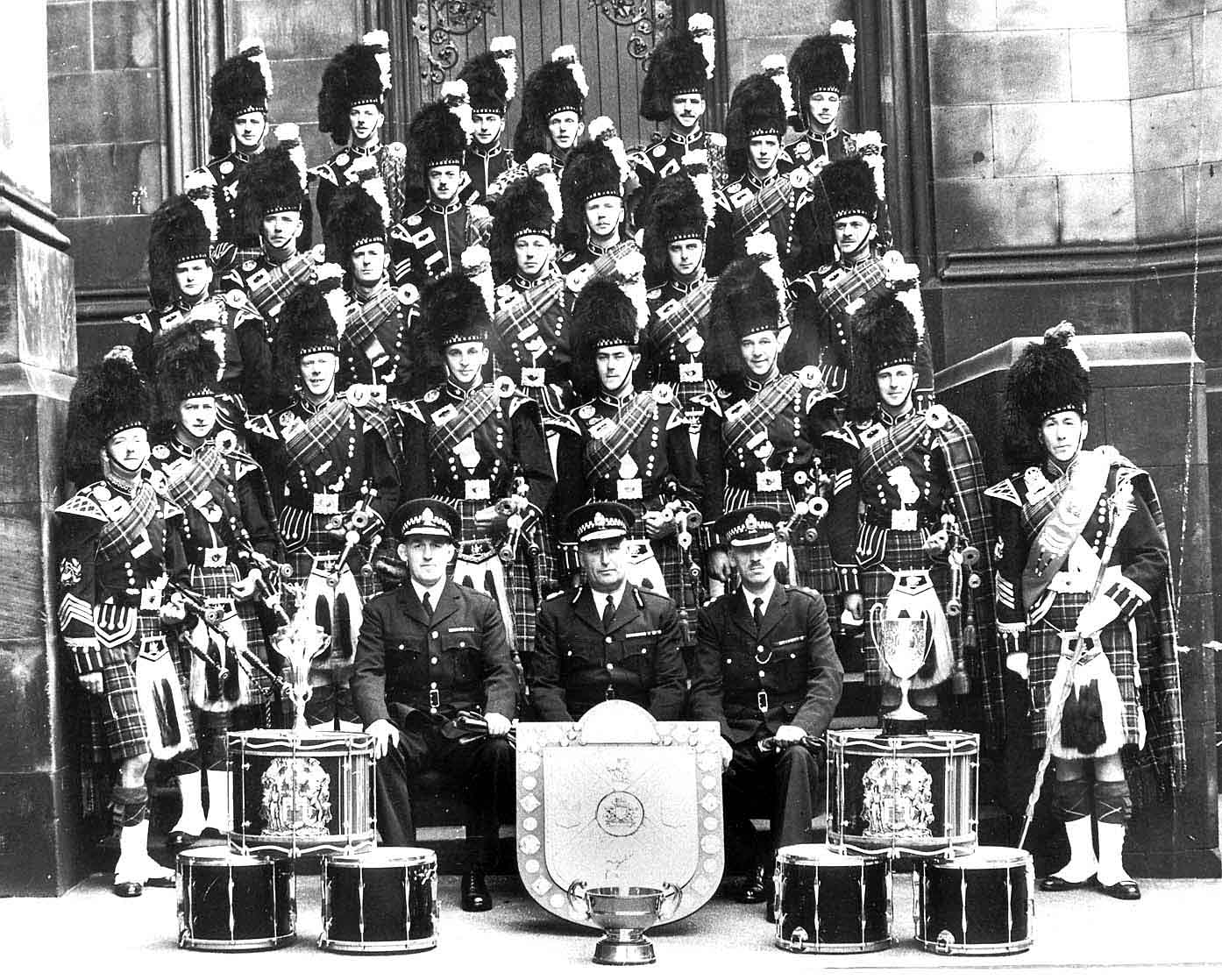
George was a musician, and the musical presentation of a tune was his number-one priority. Although he taught through the use of a written score, he placed massive importance on the aural translation of the music. There are still many tunes that I cannot play without being instantly transported back to that living room and hearing George singing it.
George was incredibly generous with his time and knowledge. Lessons were supposed to be an hour long. I would go straight from school at about 4 pm, and if I hadn’t phoned home for a lift by 7 pm, my mum or dad would just appear at George’s door to collect me. £3 was meant to be the cost of the “hour-long lesson,” but we had to resort to paying George with rainbow trout that my dad had caught, as he would rarely accept a penny. There was many a Friday night, on the eve of a contest, where I would be panicking about my pipes, and George would have me round to give them a listen and make any tweaks needed to help put me at ease.
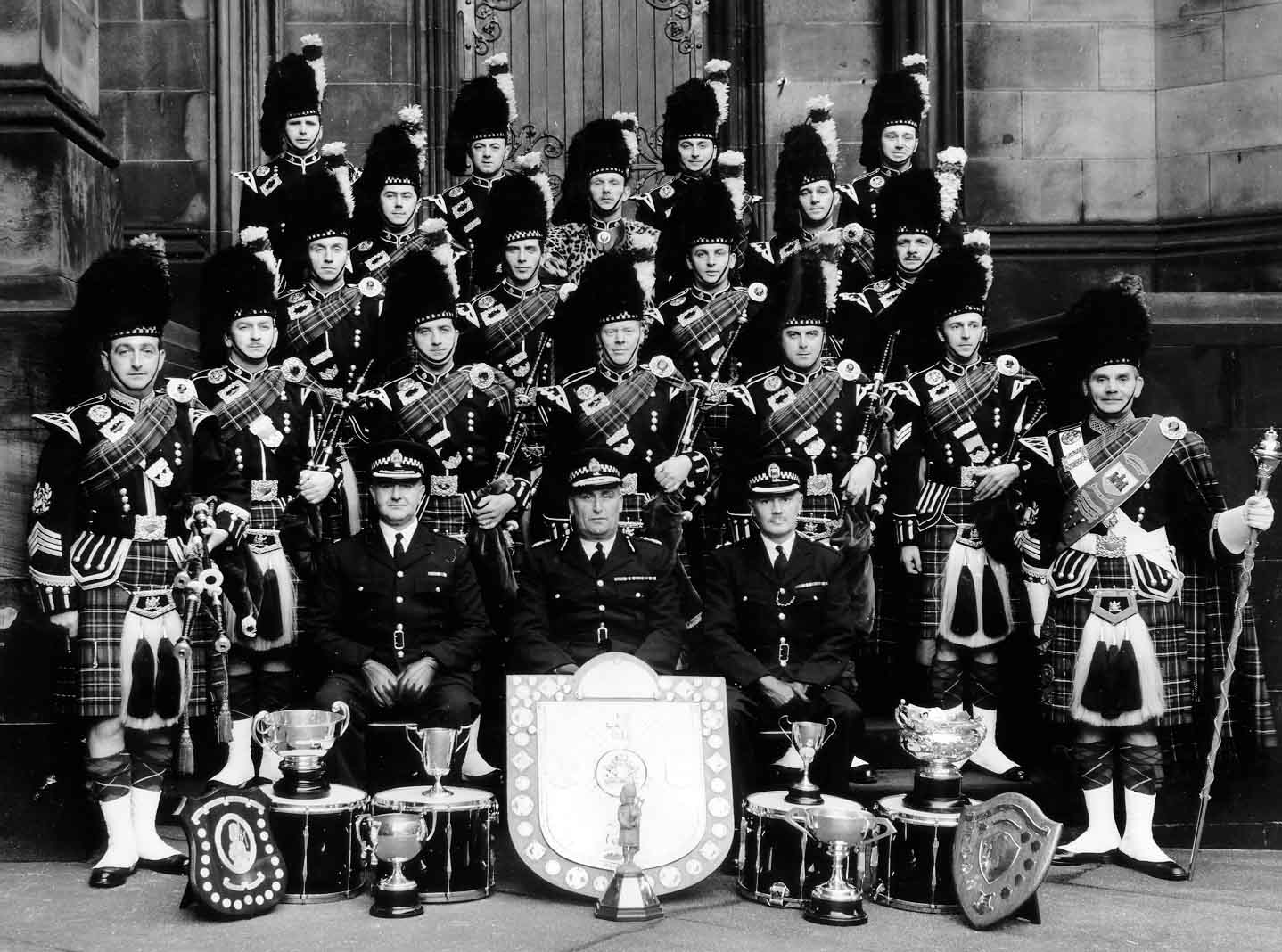
George always inspired me to work hard for him and to develop and improve my playing. He spoke to me as an equal, even at such a young age. He was very open to different styles and variations of tune settings, all of which were presented to me when learning a tune. His own style of playing was incredibly musical. His light music had forward motion, which moved softly through the phrases and was never overly pointed. I think a comparable approach to his playing style would be that of the late great Iain Morrison and Alasdair Gillies. In fact, it was in one of my first lessons with George that he handed me a cassette tape of Alasdair Gillies and said, “If you want to learn how to play an MSR, listen to that.”
George was born in Dysart, Fife, and moved to Kirkcaldy when he was two. When World War II broke out, his father successfully applied for a job at Dollar Cemetery with a house and the promise of a place at Dollar Academy for his children.
It was at Dollar that George’s piping story began, receiving tuition initially from P-M Bert Garrick of the Argyll and Southern Highlanders and Will Fraser of the King’s Own Scottish Borderers. After leaving school, George signed up for the 1st Battalion, the Black Watch, where his cousin was Pipe-Major. He spent six years in the army, leaving in 1952 before joining the Edinburgh City Police in 1955. George told me that he didn’t get into the police the first time that he applied because he was under the required weight. Knowing how fit and healthy he always was, that never surprised me.
George won five world championships with the Edinburgh City Police, but I don’t remember him telling me this. He was a very quiet, private, measured man who was never keen to advertise his achievements.
George had many influences in his piping development through his school and army life. After his army days, he received piobaireachd tuition from Bob Nicol, although he always maintained that he learned most of his playing from listening to prominent players of the day and selecting aspects of their playing that he enjoyed to incorporate into his own. George did tell me that of all the players of his day, his good friend and former Pipe-Major, John D. Burgess, was his favourite, saying, “John had a sort of mercurial flow to his playing. I don’t think we even got the best of John’s playing.”
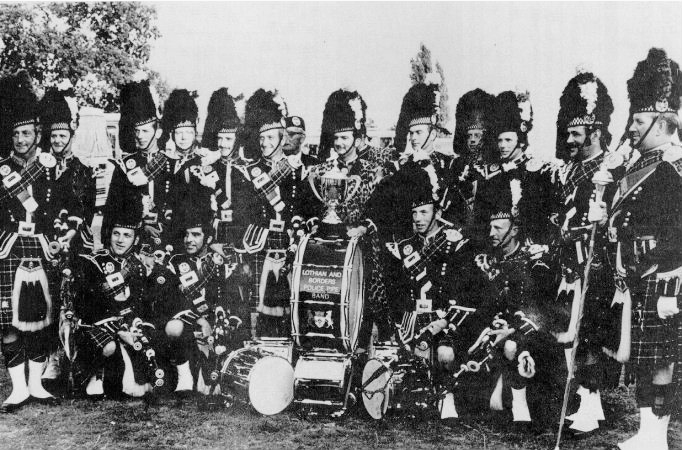
George was Pipe-Sergeant to John D. Burgess in Edinburgh City Police, and he viewed this time in the band as his most enjoyable. He recalled that he would select the reeds and set up the chanters, and John would tune the drones, three drones at a time and conduct performances to his way of playing. George won five world championships with the Edinburgh City Police, but I don’t remember him telling me this. I always had to ask about it, and I think this is an insight into his values. He was a very quiet, private, measured man who was never keen to advertise his achievements.
As a reedmaker, George was highly respected. His drone and pipe chanter reeds were played worldwide at all levels. Watching George make reeds and witnessing the relentless testing and ruthless selection process was fascinating. Any reed leaving his workshop had to be vibrant, responsive and at the required pitch. If a reed didn’t meet his high standards, it was binned, regardless if it was destined for a top Grade 1 or struggling Grade 4 band.
![Past Edinburgh City / Lothian & Borders Police Pipe Band pipe-majors reunite in 2010 (L-R): Keith Dawes, Kenny McBride, George Lumsden, Colin MacLellan, Iain McLeod, Duncan Smith and Harry McNulty. [Photo: Stewart Gardiner]](https://www.pipesdrums.com/storage/2024/01/EdinburghPolice_PMs_Apr2010.jpg)
Anyone who knew George benefited from his warmth, generosity, encouragement, and guidance. I personally feel incredibly fortunate to have spent so many hours in his company and to have been able to call a tutor – and a friend.
Chris Gibb is one of George Lumsden’s top piping pupils. Gibb enjoyed a solid career in solo and pipe band competitions, picking up numerous prizes in the UK He has been a member of several top-grade bands, including Drambuie-Kirkliston and ScottishPower, which he joined in 2002 and is currently a member of. In addition to George Lumsden, Chris Gibb’s other teachers include Willie McBride, Gavin Stoddart, Bruce Gandy and Roddy MacLeod. He is the piping tutor for Stirling & District Schools, where he runs two successful competing pipe bands in the novice grades. He lives in Stirling, Scotland.


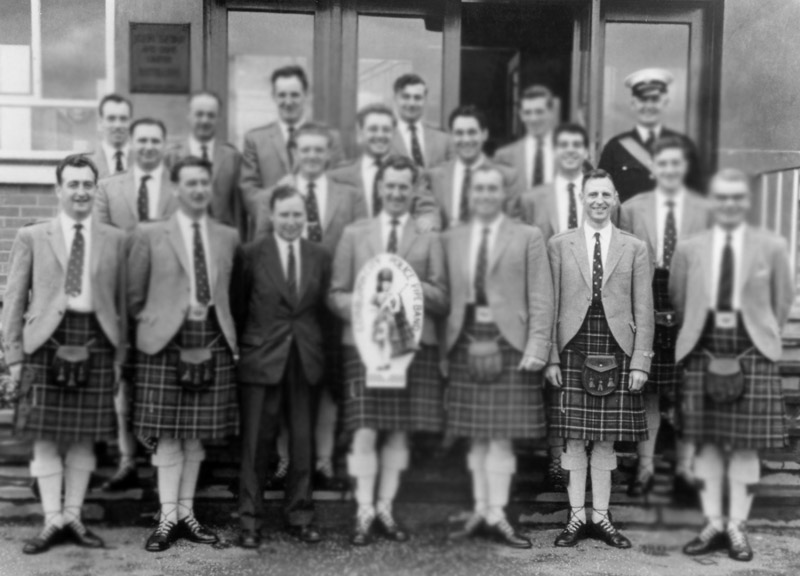
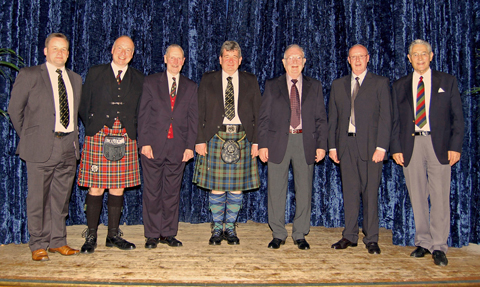

NO COMMENTS YET